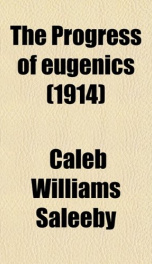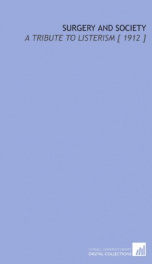Woman and Womanhood

Purchase of this book includes free trial access to www.million-books.com where you can read more than a million books for free. This is an OCR edition with typos. Excerpt from book: CHAPTER III THE PURPOSE OF WOMANHOOD In due course we shall have to discuss the little that is yet known and to discuss the much that is asserted by both sides, for this or that end, regarding the differences between men and women. By this we mean, of course, the natural as distinguished from the nur- tural differencesto use the antithetic terms so usefully adapted by Sir Francis Galton from Shakespeare. Our task, we shall soon discover, is not an easy one: because it is rarely easy to disentangle the effects of nature from those of nurture, all the phenomena, physical and psychical, of all living creatures being not the sum but the product of these two factors. The sharp allotment of this or that feature to nature or to nurture alone is therefore always wholly wrong: and the nice estimation of the relative importance of the natural as compared with the nurtural factors must necessarily be difficult, especially for the case of mankind, where critical observation, on a large scale, and with due control, of the effects of environment upon natural potentialities is still lacking. But here, at least, we may unhesitatingly declare and insist upon, and shall hereafter invariably argue from, the one indisputable and all-important distinction between man and woman. We must not committhe error of regarding this distinction as qualitative so much as quantitative: by which is meant that it really is neither more nor less than a difference in the proportions of two kinds of vital expenditure. Nor must we commit the still graver error of asserting, without qualification, that such and such, and that only, is the ideal of womanhood, and that all women who do not conform to this type are morbid, or, at least, abnormal. It takes all sorts to make a world, we must remember. Further, the ... --This text refers to an alternate Paperback edition.
Info about the book
Author:
Series:
Unknown
ASIN:
B004UJJEPE
Rating:
3.5/5 (1)Your rating:
0/5
Languge:
English
Users who have this book
Users who want this book
What readers are saying
What do you think? Write your own comment on this book!
write a commentif you like Woman and Womanhood try:
Other books by this author
Do you want to exchange books? It’s EASY!
Get registered and find other users who want to give their favourite books to good hands!




